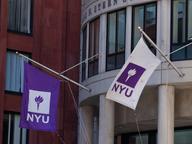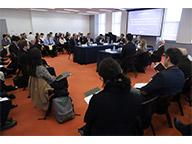Faculty News
—
Professor Baruch Lev's blog post on how machine learning can be used to improve accounting data is featured
—

Excerpt from Advisor Perspectives -- "I am not optimistic about reversing the trend of the ever-rising estimates, but I found a way of substantially improving their accuracy and reliability, thereby enhancing the usefulness of reported earnings and asset values to investors."
Faculty News
—

Excerpt from Advisor Perspectives -- "I am not optimistic about reversing the trend of the ever-rising estimates, but I found a way of substantially improving their accuracy and reliability, thereby enhancing the usefulness of reported earnings and asset values to investors."























